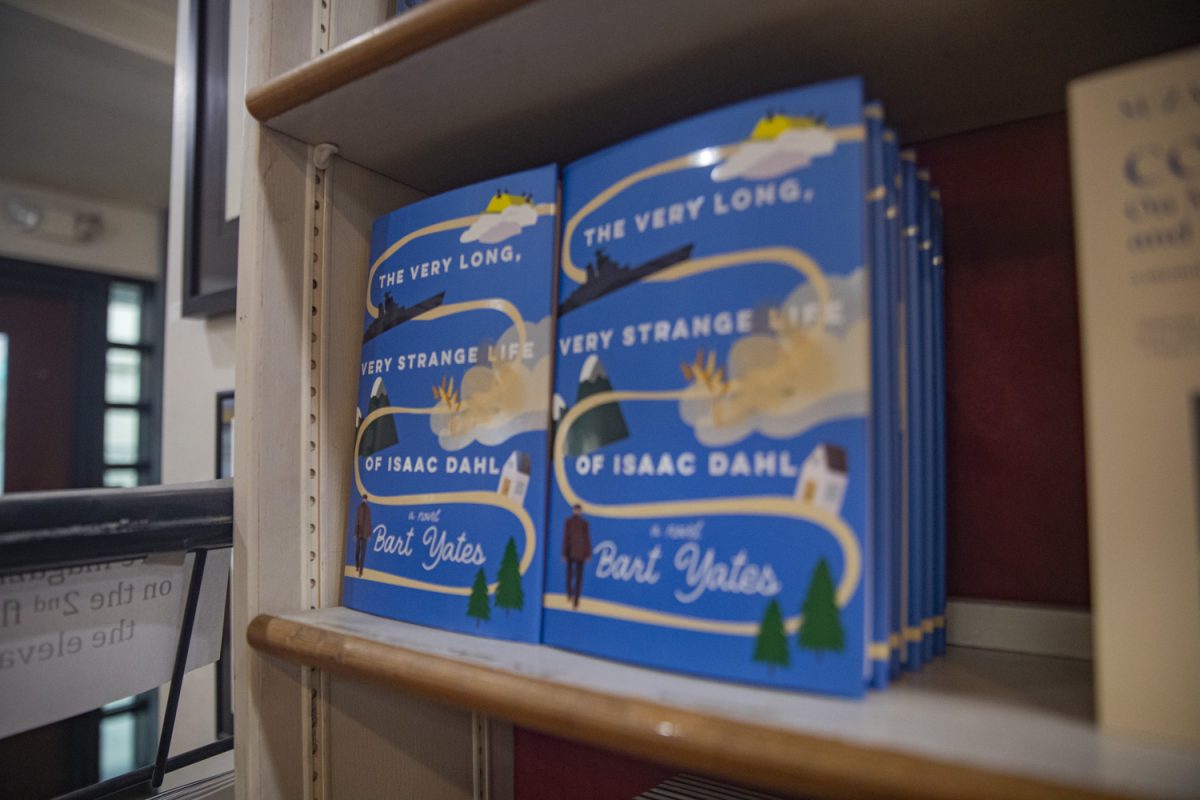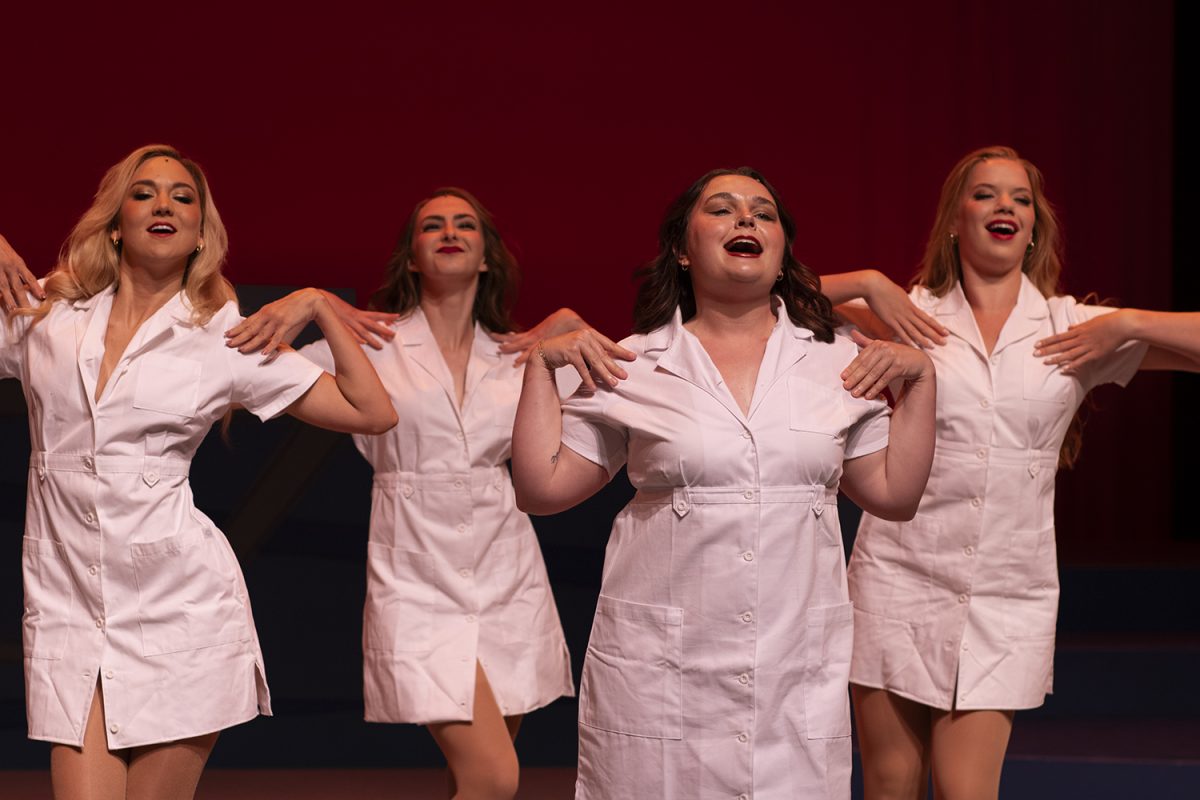Is it better to have loved and lost than to have never loved at all? If a relationship — the pleasant and heart-breaking memories alike — could be completely wiped from your memory, would you choose to do so?
Room/Heart, the first show of the University of Iowa Theater Department’s season, will explore the idea of memory regarding relationships at 8 p.m. on Friday and Saturday in 172 Theater Building. Admission is free.
“Through the use of poetry and symbolic physicality, we tell the story of a girl who’s gone through something traumatic and how she uses memory and the absence or release of memory and the distortion of memory to cope with it,” said director Annie Levitz. “In essence, we’re just examining the way memory functions.”
The script began as Caitlin Dorsett’s final project for Playwriting II, but she felt there was opportunity for growth and development.
“There’s this girl who had a really traumatic relationship with this boy, and at the end of it, she decides to write out every memory she has of the relationship,” Dorsett said. “The memories that she takes out are physically embodied by these shadow characters. What she finds is that as she writes out every memory, it disappears. The trouble happens when the boy comes back and is trying to have the opposite effect.”
While developing the script, Dorsett said, she felt there were thousands of traditional plays about relationships, so she decided to format hers a bit differently.
“It’s a poetry play so everything is written in a poetry format and we’re using movement and viewpoints to stage the show,” Dorsett said. “It isn’t really plot heavy — it’s focused on theme — which is why we’re using a combination of poetic language and movement instead of just a basic dialogue show.”
To begin the staging process, Dorsett first needed to find a director who could help mix the artistic visions and bring the show to life. Levitz was assistant directing A Dream Play at the time, a piece also very focused on movement and theme, leading Dorsett to approach her about pairing up to produce the show.
“I’m really intrigued by movement-based pieces,” Levitz said. “I also love the poetry and the opportunity to do something that isn’t reality, but is grounded in reality.”
Once the proposal to stage the work was approved, Dorsett and Levitz began meeting to discuss how to stage the drama.
“I think our first meetings were based on vision and what our first instincts were and making sure we were on the same page,” Levitz said. “We realized we had the same sort of thought process about it. Then we asked what are we trying to say, what is the purpose of putting this on?”
As a workshop production, each performance will be followed by a talk-back in which the audience members share their thoughts and opinions on the show to allow it to continue to develop.
“This definitely isn’t the ending-point at all for the show, so we’re looking for feedback and directions of where this show can go,” Dorsett said.
Although Levitz will not be moving forward with this show, the talk-backs are still very important for her future development.
“I have very little directing experience, so just getting feedback is always helpful,” Levitz said. “I know these are the styles of shows that I’m very interested in pursuing, so anything about what worked and what didn’t work and how to approach different elements of style within shows is always helpful.”
Before deciding what worked and what did not, the cast and crew first had to decide what they were trying to accomplish through this piece.
“I hope audiences get a chance to see something different,” said Lani Engstrom, the actor playing the Girl. “Our show doesn’t have scenes, or lights, or fancy costume changes, but we are creating interesting images and speaking beautifully written poetry.”
Levitz said she would love for people to leave considering the way they confront their memories. In addition to pondering the show’s theme, she would also like audience members to reflect on the show’s style.
“Apart from the theme or message we’re trying to attain, I’d love for people to just consider the different styles of storytelling; how poetry, dance, theater, can come together to tell one story, and where those lines blur,” Levitz said.
With a relatively bare stage and minimal design, the audience should focus heavily on the text and message of the production.
“I want to provoke thought about memory and how we manage or corrupt our own memories in order to lessen pain or to get past traumatic events,” Dorsett said. “And [also] how that affects the entire opinion we have and the way we view our own memories and the way we tend to think.”
THEATER






